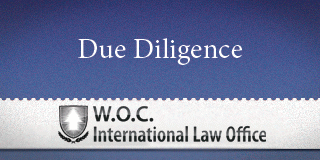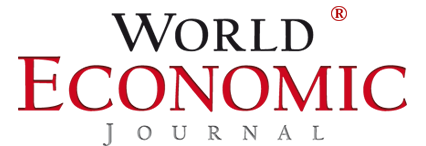 |
 |
Russia’s Long Road to the WTOThe article is published in: March 2013 Russia had been negotiating accession to the World Trade Organization for almost 19 years, and after it finally happened, many of the barriers that states had erected against Russian goods were not removed. But there has already been a noticeable gain from membership in the WTO: It will make Russian companies more competitive on the global market, experts believe. However, having joined the WTO after an “adult” phase of negotiations, Russia is still a child in matters relating to the rules of the organization, just beginning to learn the principles of the new game. On August 22, 2012, after negotiations that lasted 19 years, Russia finally joined the WTO. After the long-awaited event, the arguments began about whether it was worth joining or would axe agriculture and flood the market with foreign goods, smothering domestic manufacturers. The law firm of Muranov, Chernyakov & Partners, together with the company Grayling, did a study of the views of Russian entrepreneurs on WTO membership. Their report notes that the respondents couldn’t come to a consensus, so they grouped people whose answers were more or less similar. To the question of “Was it worth it to join?” the business leaders answered “No!”, explaining that participation in the WTO could hurt Russian light industry, machinery, and agriculture, as well as pipe manufacturing, aircraft construction, and machine tools. A second group of entrepreneurs noted that WTO accession won’t hurt raw material exports. The report says that gas companies are expected to suffer because of the expected price pressure due to liquefied gas, shale gas, and gas from other sources that Europe is working to develop. Analysts are in agreement that the new sources of gas, including from shale and from coal seams, have already changed the outlook for American energy. That means it’s likely that they will also affect the global market, particularly in terms of pricing. Competition Should Be Healthy Kari Liuhto, Professor in the Turku School of Economics at the University of Turku, specialist on the Russian economy, and Director of the Pan-European Institute (Finland), agrees: “Russia must improve its competitiveness (i.e., move away from a resource-based economy), which is why the WTO is an effective instrument for increasing competition in Russia.” The Finnish professor notes that observing WTO rules plays an important role. Mr. Liuhto stresses that Russia needs to follow WTO rules, not so that it can become a “good” member, but to increase the competitiveness of domestic enterprises, eventually leading to greater Russian competitiveness on the global market. However, for many domestic companies, the current growing competition on the domestic market is the main cause of concern, says Anna Vetova, a lawyer from the Muranov, Chernyakov & Partners law firm: “That’s why the first task of Russian companies en route to full participation in the international markets should be to consult with lawyers who are independent of the company, in order to analyze the problems and risks and suggest ways of dealing with them.” She added that domestic companies should monitor trade with other WTO members in order to give themselves time to respond to any violations, thus ensuring the least damage to themselves. In the event of unfair trade practices from foreigners, Vetova suggests contacting the competent authorities, who can impose anti-dumping measures or demand compensation from the guilty party. Experts believe that Russia’s membership in the WTO will resolve some of the “distortions” from partners in the trade organization. According to Vladimir Salamatov, CEO of World Trade Center (Moscow), there are currently 54 non-tariff barriers to Russian manufacturers and five investigations (four of which are anti-dumping and one a special protective investigation, per the Ministry of Economic Development’s website). Salamatov says that the most important aspect will be the removal of barriers and restrictions that apply to Russian goods on the markets of WTO countries. Since accession, some of the barriers have begun to dissolve. Serious Barriers Fall In December 2012, Brazilian President Dilma Rousseff made an official visit to Russia. In a meeting at the Kremlin with Vladimir Putin, the leaders talked about how trade between Russia and Brazil is constantly growing. The President of Russia noted that there are opportunities to diversify trade between the two countries. In turn, Ms. Rousseff stressed that Russian-Brazilian relations should not be confined to arms sales. However, this tropical Latin American country has yet to remove barriers to the delivery of other Russian goods. Russian Deputy Prime Minister Arkady Dvorkovich reminded listeners of this at a business forum about Brazilian and Russia partnerships. Trade barriers today hinder economic relations with both Brazil and the other BRIC countries, he said. And the European Union is in no hurry to remove barriers either. The Alliance of Liberals and Democrats for Europe expressed the view that Russia should implement reforms that will help fight corruption, ensure the rule of law, and improve the business climate. Russia’s compliance with all of the WTO’s rules is one of the conditions for further negotiations with the EU on regulatory control of government procurements, energy, and investments, says the Alliance’s website. It’s becoming clearer that Russia still has many problems with other countries and that solving them will take more than one round of negotiations. That’s why Vladimir Salamatov doesn’t believe that serious barriers will fall in the near future: “I don’t think it’s worth hoping that these restrictions will automatically be lifted – only a fraction of the barriers enacted as quantitative restrictions prior to joining were removed immediately after our accession. Eliminating most of the anti-dumping measures will require consistent hard work on the part of Russian exporters, the Ministry of Economic Development, and the Ministry of Foreign Affairs. We simply must initiate procedures for their revision, in full accordance with the rules and regulations of the WTO.” But one way or another, most of the protectionist barriers are still in effect, both for Russian exports abroad and for imports into Russia, which raises the question: Has Russia actually even become a WTO member? “Of course Russia is a ‘real’ member of the alliance, if for no other reason than that other WTO members have to listen to what it says,” said Richard Baldwin diplomatically, Professor of International Economics at the Graduate Institute (Geneva). But research also shows that in order to strengthen the new member’s position, its leaders need to become more aware of what it means to be a WTO member, what opportunities it gives the country and what duties it imposes. Russian economist German Gref would agree with Baldwin: At the Gaidar Forum, he quipped that Russian officials still don’t know the rules of the World Trade Organization. What Does Membership Hold in Store? Kari Liuhto agrees, adding that Russia’s success in the trade organization is possible if the country stops focusing on short-term national interests, because this will not gain it influence or respect from its colleagues in the WTO. Despite Russia’s “focus,” the Finnish professor believes that the country will occupy the strongest position to the extent that it upholds the ideals of free trade and strictly follows the rules of the WTO. From the standpoint of Russian experts, membership in the World Trade Organization is a way to keep our economy away from “bad influences.” “For Russia,” Vladimir Salamatov says, it “is essential that all changes be made with its participation. The main task for Russian representatives in the WTO, in my view, is to critically evaluate other countries’ proposals that might have a negative impact on the domestic economy. This will prevent the adoption of decisions that are negative for Russia.” Text: Dariya Getmanova
It is not possible to make a comment anonymously. Please login. It is very simple. |
  |








